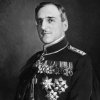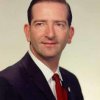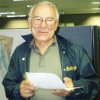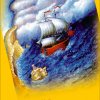Sidebar
Site Map
A great man is one who collects knowledge the way a bee collects honey and uses it to help people overcome the difficulties they endure - hunger, ignorance and disease!
- Nikola Tesla
Remember, remember always, that all of us, and you and I especially, are descended from immigrants and revolutionists.
- Franklin Roosevelt
While their territory has been devastated and their homes despoiled, the spirit of the Serbian people has not been broken.
- Woodrow Wilson
His Majesty King Peter II
King Peter II of Yugoslavia was the firstborn son of King Alexander I and Queen Maria of Yugoslavia. King Peter II was born in Belgrade 6 September 1923 his Godparents were King George VI and Queen Elizabeth (later Queen Mother of Great Britain). His education commenced at The Royal Palace after which he went to Sandroyd School in England, which he left after his father's assassination in 1934. Since King Peter II was 11 years old and underage at the time of his father’s assassination, a regency was formed consisting of three regents including his great uncle Prince Paul Karadjordjevic.
Serbian royals return after exile
CNN's Paula Newton tours Belgrade's royal palace and explores the country's religious identity
.




